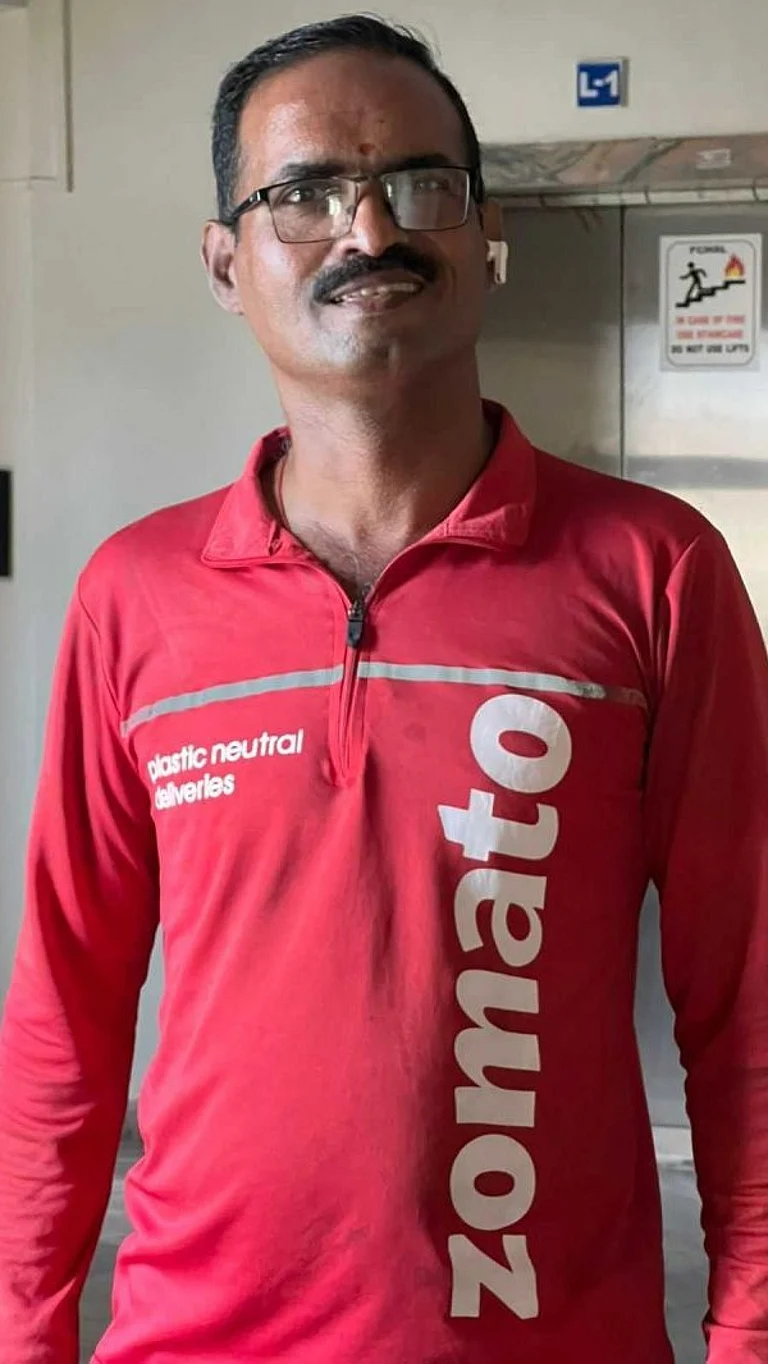As debates over fair wages and delivery partners’ working conditions continue to swirl around India’s food delivery space, veteran investor Samir Arora weighed in with a post on X (formerly Twitter) that unfolded the “basic economics” of food delivery.
Only Rs 38 Per Order? Samir Arora Reveals 'Basic' Maths Behind Delivery Partners' Pay
Investor Samir Arora sparked fresh conversation around the financial sustainability of India’s food delivery model, breaking down the economics of what a delivery partner can realistically earn—and how little room that leaves for platform profits or fair wages
“One person can at best delivery 2 order per hour…that’s just 520 deliveries a month. If the delivery partner earns Rs 20,000 monthly, that already adds Rs 38 per order,” he explained, while saying these wages do not include fuel, bike depreciation, customer service, or platform profit.
“No one is exploiting anyone,” he wrote, while indirectly criticising food delivery players for underpaying delivery partners. "No amount of scaling etc can reduce this much."
His post came amid the ongoing buzz in food delivery industry as ride-hailing platform Rapido revealed its low commission strategy to challenge the Swiggy-Zomato duopoly. It has finalised to enter the market with half the commissions compared to rivals Swiggy and Zomato.
While Swiggy and Zomato charge commissions of around 16-30%, Rapido will charge only 8-15% from restaurants; depend upon the order value, the report said. It also gave clarification on delivery fee, that is, customers will be charged ₹25 for orders below ₹400 and ₹50 for above.
Zomato, meanwhile, has introduced a new distance-based fee structure for restaurants to boost profitability on every order. For orders valued above ₹150, restaurants will be charged an extra ₹20 if the delivery address is 4–6 km away from their outlet or cloud kitchen, as per the document reviewed by MoneyControl.
This fee doubles to ₹40 for deliveries exceeding 6 km. For lower-value orders—those priced under ₹150—no additional fee will apply as long as the delivery is within a 6 km radius.
If these small orders are delivered beyond 6 kilometres, Zomato will collect Rs 40 per order from the restaurant. However, the total amount payable to Zomato, including all components, will be capped at 30% of the order value in commission.
This isn't the first instance where concerns have been raised about gig workers associated with food delivery and quick commerce platforms. Industry experts have been calling out for fair wages, job security, social protection, and weather-friendly conditions for delivery partners.
A few months ago, Blinkit workers protested against low pay, poor working conditions, and the lack of summer-appropriate uniforms in Varanasi. They called for an end to mandatory 12 to 4 pm working hours, a higher minimum wage, cotton uniforms, and access to basic facilities such as drinking water, shaded waiting areas, etc.
This debate began with the beginning of 2025 when comedian Kunal Kamra targeted quick commerce platforms for the social security and welfare of gig workers, while highlighting problems they face in the 10-minute delivery process --- unfair wages and long working hours.

